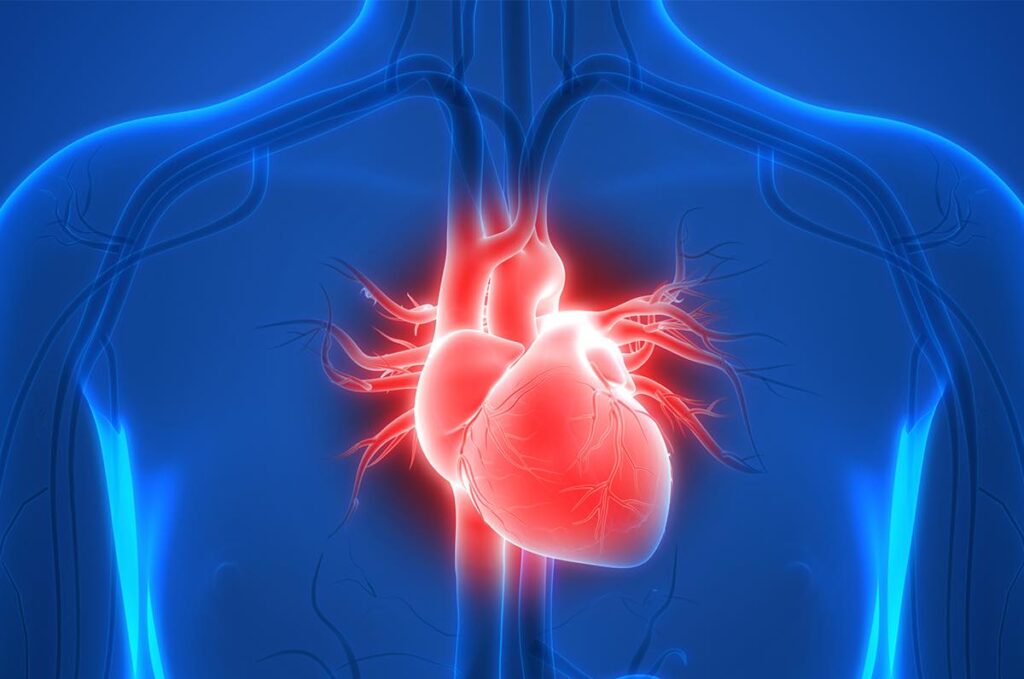
Diet plays a major role in preventing heart disease by managing blood pressure, cholesterol, and inflammation. Mediterranean, DASH, Plant-Based, Flexitarian, and TLC diets emphasize fruits, vegetables, whole grains, healthy fats, and lean proteins while limiting processed, sugary, and salty foods to promote optimal cardiovascular function.
Key Takeaways
- Mediterranean, DASH, Plant-Based, and TLC diets are most effective for heart protection.
- Core nutrients: fiber, antioxidants, and healthy fats from olive oil, nuts, and fish.
- Key foods: leafy greens, berries, whole grains, legumes, and fatty fish.
- Limit processed meats, added sugars, excess sodium, and fried foods.
- Monitor cholesterol, triglycerides, and blood pressure for progress tracking.
- Combine diet with exercise, stress control, and sleep for stronger heart health.
Introduction to Heart Health

Heart disease is a leading cause of death worldwide. What we eat greatly influences our heart’s health. Choosing the right foods can reduce risks like high blood pressure, high cholesterol, and inflammation, which are major contributors to heart problems. Understanding how diet impacts heart health can help you make smarter choices for long-lasting wellness.
Understanding Cardioprotective Nutrition
Nutrition plays a crucial role in controlling factors such as blood pressure and cholesterol. Certain nutrients help reduce inflammation and protect arteries. The key elements of a heart-healthy diet include fiber, healthy fats, and antioxidants. These components work together to maintain the health and function of your cardiovascular system.
Overview of Top Recommended –Best Diet for Heart Health
Several diets have been extensively studied and show clear benefits for heart health. Despite differences in their specific guidelines, these diets share important common features. They emphasize a high intake of plant-based foods, prioritize whole grains, include healthy fats like olive oil and nuts, and limit processed and high-sodium foods. These patterns help reduce risk factors such as high blood pressure, high cholesterol, and inflammation, all of which contribute to heart disease.
Mediterranean Diet
The Mediterranean diet is based on the traditional eating habits of countries bordering the Mediterranean Sea. It includes a wide variety of fruits, vegetables, whole grains, nuts, and legumes. Olive oil is the primary source of fat, celebrated for its heart-protective properties. Moderate consumption of fish and seafood, which provide omega-3 fatty acids, is encouraged. Red meat and sweets are limited, and dairy is consumed in moderation, often as cheese or yogurt. Research consistently shows that this diet reduces the risk of heart attacks, stroke, and overall heart disease.
DASH Diet (Dietary Approaches to Stop Hypertension)

The DASH diet is specifically designed to combat high blood pressure, a major risk factor for heart disease. It emphasizes nutrient-rich foods that are low in sodium and high in potassium, calcium, and magnesium. Key components include fruits, vegetables, whole grains, and lean protein such as poultry and fish. Processed foods, sugary beverages, and salt are minimized.
Plant-Based and Flexitarian Diets
Plant-based diets focus primarily on vegetables, fruits, whole grains, legumes, nuts, and seeds. They either completely exclude or significantly reduce animal products. The flexitarian diet is a flexible approach that mainly includes plant foods but allows occasional meat or dairy. These diets are rich in fiber and antioxidants, which lower cholesterol and reduce inflammation. Studies show that eating mostly plants supports better heart health compared to diets heavy in processed and red meats.
TLC Diet (Therapeutic Lifestyle Changes)

The TLC diet was developed to help lower cholesterol and improve heart health. It stresses cutting down on saturated fats found in fatty meats, full-fat dairy, and certain oils. At the same time, it promotes increasing soluble fiber from oats, fruits, and legumes, which helps reduce “bad” LDL cholesterol. Along with diet changes, the TLC program recommends regular physical activity and weight management. This comprehensive approach helps decrease the risk of heart disease by targeting multiple factors.
Essential Food Groups for Heart Health
Focusing on the right food groups is crucial for protecting your heart and maintaining overall cardiovascular health. These foods provide vital nutrients that improve heart function and help reduce the risk of heart disease.
Fruits and Vegetables
Fruits and vegetables are packed with antioxidants and phytochemicals that help protect the arteries from damage. These compounds reduce inflammation and prevent the buildup of harmful plaques.
- Berries like blueberries and strawberries are rich in flavonoids, which help improve the function of blood vessels.
- Leafy greens such as spinach and kale contain nitrates that can help lower blood pressure naturally.
- Tomatoes provide lycopene, a powerful anti-inflammatory compound linked to a reduced risk of heart disease.
Whole Grains
Whole grains are an important source of dietary fiber, which plays a key role in lowering LDL (bad) cholesterol and maintaining healthy blood pressure levels.
- Choose whole grains such as brown rice, oats, barley, and quinoa instead of refined grains like white bread and pasta.
- Fiber in whole grains slows digestion, preventing rapid spikes in blood sugar and cholesterol.
Healthy Proteins
The type of protein you eat impacts your heart differently. Choosing healthier protein sources supports cardiovascular health.
- Plant-based proteins such as beans, lentils, and soy are rich in fiber and nutrients but low in unhealthy fats.
- Fatty fish like salmon, mackerel, and sardines provide omega-3 fatty acids that reduce inflammation and lower triglyceride levels.
- Lean poultry and low-fat dairy are good options when eaten in moderation.
Healthy Fats and Oils
Healthy fats improve cholesterol levels and reduce inflammation in the arteries.
- Use olive oil, especially extra virgin, for cooking and salad dressings.
- Include nuts and seeds in your diet as they provide unsaturated fats and fiber.
- Avocados are a rich source of monounsaturated fats that support heart function.
Dairy Choices
Dairy products provide calcium and protein, essential for overall health, but choosing the right types is important for heart protection.
- Opt for nonfat or low-fat dairy options to reduce saturated fat intake.
- Limit consumption of full-fat cheese and cream since they can raise cholesterol levels.
- Some fermented dairy products like yogurt may offer added benefits for gut and cardiovascular health.
Foods to Limit or Avoid
Certain foods can increase the risk of heart disease and should be limited in your diet.
- Added sugars raise triglyceride levels in the blood and negatively affect blood sugar control, which increases the risk of heart problems.
- Processed meats like sausages and bacon, along with refined grains such as white bread and sugary cereals, promote inflammation and raise harmful LDL cholesterol.
- Excess sodium consumption leads to high blood pressure, a major heart risk factor. It is best to keep sodium intake below 2,300 mg per day.
- Fried foods and fast food often contain unhealthy trans fats and high levels of saturated fats, which contribute to clogged arteries and other heart issues.
Spotlight on Specific Heart-Protective Foods
Certain foods stand out for their unique heart health benefits, supported by scientific research. Including these in your diet can provide powerful protection for your cardiovascular system.
- Leafy Green Vegetables: Vegetables like spinach, kale, and arugula help improve blood pressure by boosting nitric oxide in the body. Nitric oxide relaxes blood vessels, allowing better blood flow and reducing strain on the heart.
- Berries: Blueberries, strawberries, and other berries are rich in polyphenol’s natural compounds that reduce oxidative stress and inflammation. This helps protect blood vessels from damage and supports overall heart health.
- Fatty Fish: Fish such as salmon, mackerel, and sardines are excellent sources of omega-3 fatty acids. These fats lower the risk of blood clots, reduce inflammation, and decrease triglycerides, collectively lowering the chance of heart attacks.
- Nuts and Seeds: Almonds, walnuts, flaxseeds, and chia seeds contain phytosterols, plant compounds that block the absorption of bad LDL cholesterol in the intestines. They also provide healthy fats and fiber that improve cholesterol balance.
- Olive Oil, Garlic, and Tomatoes: Extra virgin olive oil is rich in antioxidants and healthy fats that lower inflammation and bad cholesterol. Garlic contains compounds that reduce blood pressure and improve cholesterol levels. Tomatoes offer lycopene, an anti-inflammatory antioxidant linked to reduced heart disease risk.
Sample 7-Day Heart Healthy Meal Plan
A balanced weekly plan helps apply these principles practically.
- Day 1: Oatmeal with berries; grilled salmon, quinoa, steamed broccoli; mixed nuts.
- Day 2: Smoothie with spinach and banana; turkey breast, brown rice, roasted vegetables; apple.
- Day 3: Whole grain toast with avocado; lentil salad with olive oil dressing; yogurt with flaxseeds.
- Day 4: Scrambled eggs with tomatoes; grilled chicken, sweet potato, green beans; orange.
- Day 5: Low-fat yogurt with nuts; baked mackerel, couscous, steamed kale; pear.
- Day 6: Whole grain cereal with almond milk; tofu stir-fry with veggies; mixed berries.
- Day 7: Smoothie bowl with spinach, banana; lean beef, barley, roasted carrots; dark chocolate square.
Lifestyle Strategies to Enhance Diet Benefits
Diet alone is important, but other lifestyle factors boost heart health further.
- Regular exercise strengthens heart muscles and improves blood pressure.
- Managing stress reduces harmful inflammation and unhealthy eating triggers.
- Quality sleep supports blood sugar control and vessel repair.
- Avoid smoking as it accelerates artery damage.
Monitoring Heart Health via Nutrition
Monitoring key health markers is essential to understand how your diet affects your heart health. Regular tracking provides clear feedback, allowing you to adjust your eating habits for the best outcomes.
- Blood Cholesterol Levels: Total cholesterol, especially low-density lipoprotein (LDL), indicates how well your body manages fats. High LDL levels increase the risk of artery blockages.
- Triglycerides: These fats in the blood reflect how your body balances sugar and fat intake. Elevated triglycerides are linked to higher heart disease risk.
- Blood Pressure: Blood pressure measures the force of blood pushing against artery walls. Consistently high values strain the heart and damage blood vessels.
Common Pitfalls and Myths
Misunderstandings about diet and heart health can hinder progress. Knowing the facts helps avoid unnecessary restrictions or misplaced confidence.
- Not all fats are harmful; healthy fats like those in olive oil and nuts protect your heart.
- Whole grains offer more heart benefits compared to refined grains, thanks to their fiber and nutrients.
- Dark chocolate, when eaten in moderation, contains antioxidants that support cardiovascular health.
- Some animal products can be included in a heart-healthy diet if chosen wisely focus on lean meats and fish.
- High blood pressure may be managed through diet and lifestyle changes but sometimes requires medication for control.
Conclusion
Heart health depends greatly on diet. Top diets like the Mediterranean, DASH, plant-based, and TLC diets emphasize plant foods, healthy fats, whole grains, and lean proteins. Key heart-protective foods include berries, leafy greens, fatty fish, nuts, and olive oil. Limiting added sugars, processed meats, sodium, and fried foods reduces risk factors such as high cholesterol and blood pressure.
Tracking cholesterol, triglycerides, and blood pressure helps assess diet effectiveness. Understanding myths about fats and grains ensures balanced choices. Together with exercise and stress control, these diets provide strong support for cardiovascular health.
FAQs
What are the most research-backed foods for reducing heart attack risk?
Fatty fish, berries, leafy greens, nuts, and olive oil have strong scientific support for protecting the heart.
How do healthy fats differ from “bad” fats regarding heart health?
Healthy fats like unsaturated fats improve cholesterol and reduce inflammation, while bad fats raise bad cholesterol and clog arteries.
Are all grains helpful for the heart or only whole grains?
Only whole grains, which contain fiber and nutrients, aid heart health. Refined grains lack these benefits.
Can heart-healthy diets help reverse arterial plaque buildup?
These diets can slow plaque progression and improve artery function but cannot fully reverse advanced buildup.
How much sodium per day is recommended for optimal heart health?
Less than 2,300 mg daily is advised; some experts recommend even lower amounts for people with high blood pressure.
Is dark chocolate truly heart-protective or just a myth?
Dark chocolate contains antioxidants that have heart benefits if consumed in moderation without excess sugar.
Should people with high cholesterol avoid all animal products?
No, lean animal products and fish can fit into heart-healthy diets when consumed appropriately.
Can dietary changes alone normalize high blood pressure?
For some, yes. Diet combined with lifestyle changes significantly lowers blood pressure, although medications may be needed.
Which fruits are most effective for lowering inflammation?
Berries, cherries, and citrus fruits are rich in anti-inflammatory compounds beneficial for heart health.
How much fish should be consumed weekly for cardiovascular benefit?
Eating fatty fish at least 2 times per week is recommended to gain omega-3 benefits for the heart.
Reference
- Mediterranean Diet and General Heart Health
https://www.mayoclinic.org/diseases-conditions/heart-disease/in-depth/heart-healthy-diet/art-20047702 - DASH Diet and Blood Pressure Control
https://www.nhlbi.nih.gov/health/heart-healthy-living/healthy-foods
https://www.heart.org/en/healthy-living/healthy-eating/eat-smart/nutrition-basics/aha-diet-and-lifestyle-recommendations - Heart-Protective Foods and Dietary Guidelines
https://www.health.harvard.edu/heart-health/heart-healthy-foods-what-to-eat-and-what-to-avoid
https://www.healthline.com/nutrition/best-diet-for-heart-health
https://www.healthline.com/nutrition/heart-healthy-foods - Plant-Based, Flexitarian, and TLC Diets
https://www.bhf.org.uk/informationsupport/support/healthy-living/healthy-eating
https://www.heartfoundation.org.au/healthy-living/healthy-eating/heart-healthy-eating-pattern
Aubrey Carson is an RDN with 9 years across hospital, outpatient, and private practice settings. They earned an MS in Clinical Nutrition from Tufts University – Friedman School (2016) and completed a Dietetic Internship at Mayo Clinic. Aubrey specializes in micronutrient assessment, evidence-based supplementation, and patient education. Their work includes CE presentations for the Academy of Nutrition and Dietetics and collaborations with Mass General Brigham on nutrition education resources.


